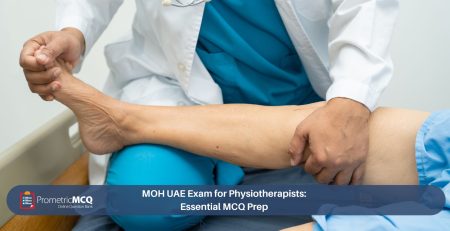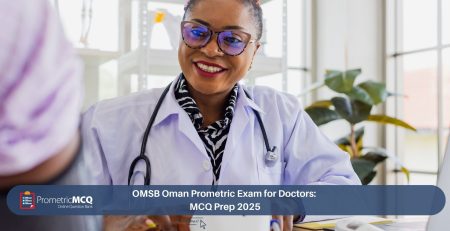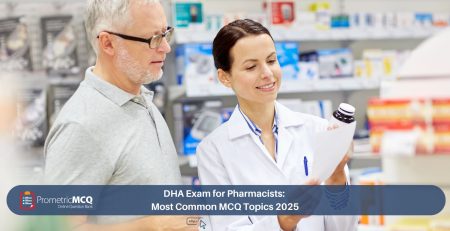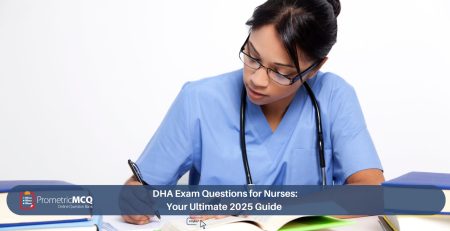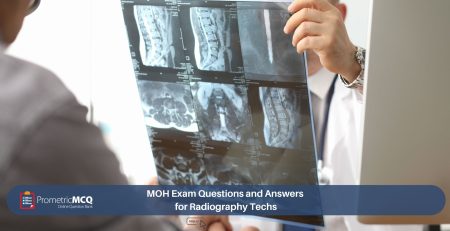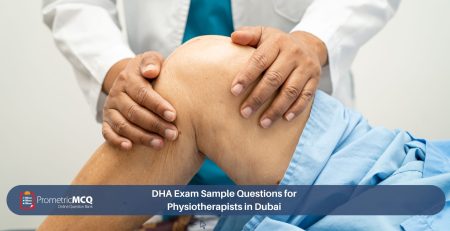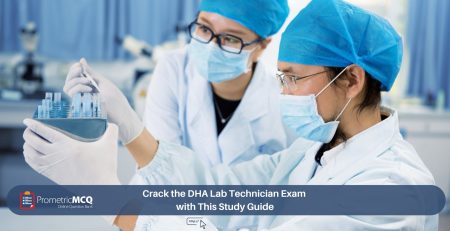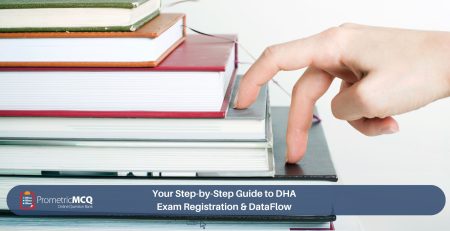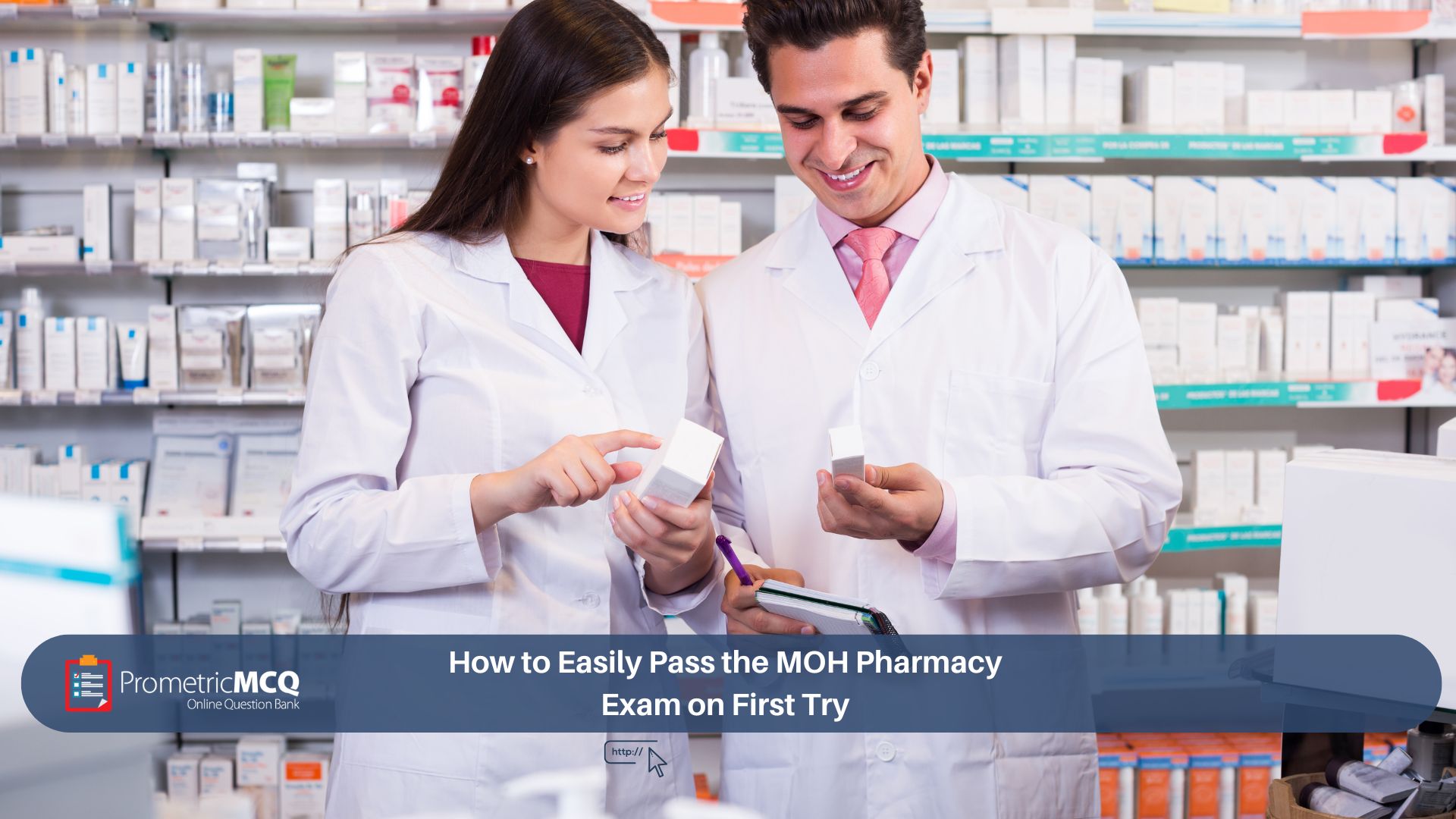
How to Easily Pass the MOH Pharmacy Exam on First Try
fatima@prometricmcq.com2025-09-15T13:55:17+00:00Table of Contents
ToggleHow to Easily Pass the MOH Pharmacy Exam on First Try
The prospect of facing the Ministry of Health and Prevention (MOHAP) Pharmacy Exam can be daunting. It is the essential gateway to practicing pharmacy in several of the UAE’s vibrant emirates, and it carries a reputation for being a rigorous and comprehensive assessment. Many candidates approach it with apprehension, hearing stories of multiple attempts and challenging questions. However, passing the MOH Pharmacy Exam on the very first try is not only possible but can be achieved with surprising ease—if you adopt the right strategy.
The secret isn’t about having a photographic memory or studying 18 hours a day. The secret is to study smarter, not just harder. It’s about understanding the exam’s psychology, focusing your efforts on high-yield areas, and leveraging the power of active, MCQ-based learning. Forget passive reading and endless note-taking; the path to a first-try pass is paved with strategic practice and targeted review.
This ultimate guide is designed to give you that strategic edge. We will provide you with a proven, step-by-step blueprint to demystify the exam and build unshakable confidence. From deconstructing the core topics to mastering pharmaceutical calculations and navigating UAE law, this article is your personal roadmap. We will show you not just *what* to study, but *how* to study for maximum efficiency, ensuring you walk into the Prometric center fully prepared to succeed. A comprehensive understanding of the MOH license process begins with mastering the exam itself.
Your First-Try Pass Strategy: The Essentials
- Adopt an MCQ-First Mindset: Your preparation must revolve around a high-quality Question Bank (QBank). This is the single most important factor for success.
- Master the High-Yield Trio: Dedicate the majority of your time to Clinical Pharmacy/Pharmacology, Pharmaceutical Calculations, and UAE Pharmacy Law.
- Practice Active Recall, Not Passive Reading: Constantly test yourself. Explain concepts out loud. Don’t just read about a drug; list its class, side effects, and counseling points from memory.
- Analyze, Don’t Just Answer: For every practice question, you must understand why the right answer is right and, more importantly, why every other option is wrong.
- Simulate Exam Conditions: Regularly take timed, full-length mock exams to build mental stamina and perfect your time management.
Deconstructing the Exam: Know Your Enemy
Before you can devise a winning strategy, you must understand the exam’s structure and content. The MOH Pharmacy Exam is a Computer-Based Test (CBT) that assesses the knowledge and skills required for safe and effective pharmacy practice in the UAE. It typically consists of 100-150 MCQs with a time limit of 2-3 hours. Every question is crafted to test your ability to apply knowledge, not just recall it. For a broad overview of the topics, our guide to the UAE MOH exam syllabus is an essential read.
Core Content Domains: Where to Focus Your Firepower
While the exam is comprehensive, not all topics are weighted equally. A strategic approach means allocating your study time in proportion to the importance of each domain.
| Domain | Weighting & High-Yield Concepts |
|---|---|
| Clinical Pharmacy & Therapeutics | (Approx. 50-60%) This is the heart of the exam. You must have a deep understanding of the pathophysiology and pharmacotherapy of common diseases. Focus on Cardiology (HTN, HF), Endocrinology (Diabetes), Infectious Diseases (Antibiotics), CNS, and Respiratory. Know your top 200 drugs inside and out: class, MOA, key side effects, major drug interactions, and patient counseling. |
| Pharmaceutics & Calculations | (Approx. 20-25%) This domain is critical because calculation questions require 100% accuracy. Master dilutions, percentage calculations, alligations, infusion rates, dosage calculations (mg/kg), and basic pharmacokinetics (half-life, clearance). Understand the properties of different dosage forms and drug delivery systems. |
| UAE Pharmacy Law & Ethics | (Approx. 10-15%) This is the section that fails many international candidates. You MUST study the specific laws of the UAE regarding prescription validity, drug classifications (Narcotic, Controlled A/B), storage requirements for controlled drugs, and patient confidentiality. Do not neglect this area. |
| Pharmacognosy, Toxicology & Over-the-Counter (OTC) | (Approx. 5-10%) This is a smaller but still important section. For pharmacognosy, focus on common herbal remedies with significant drug interactions (St. John’s Wort, Ginkgo, Warfarin interactions). For toxicology, know the common toxidromes and their specific antidotes. For OTCs, know the appropriate recommendations for common self-treatable conditions. |
Your QBank is not just an assessment tool; it is your primary learning tool. Use it from day one. Do not wait until you have “finished studying” to start answering questions.
Mastering the MCQ: Sample Questions & Strategic Breakdowns
Let’s move from theory to practice. Analyzing realistic exam questions is the best way to train your clinical reasoning skills. For a wider range of practice, using a dedicated bank of pharmacy MCQs is the most effective method.
Question 1: Clinical Pharmacy (Infectious Disease)
A patient is prescribed oral vancomycin. Which of the following conditions is this medication intended to treat?
- Methicillin-resistant Staphylococcus aureus (MRSA) bacteremia
- Pneumonia
- Clostridium difficile colitis
- Urinary tract infection
Correct Answer: C
Rationale: This question tests a crucial concept about vancomycin’s formulation and pharmacokinetics. Vancomycin, when given orally, is not absorbed systemically. It remains almost entirely within the gastrointestinal tract. Therefore, oral vancomycin is only effective for treating infections within the gut, with the primary indication being C. difficile-associated diarrhea/colitis.
Why other options are incorrect:
A, B, D: MRSA bacteremia (bloodstream infection), pneumonia (lung infection), and urinary tract infections are all systemic infections. To treat these, vancomycin must be administered intravenously (IV) to achieve adequate concentrations in the blood and tissues.
Question 2: Pharmaceutical Calculations
How many milliliters of a 70% (v/v) sorbitol solution and a 20% (v/v) sorbitol solution are required to make 500 mL of a 50% (v/v) sorbitol solution?
- 150 mL of 70% and 350 mL of 20%
- 250 mL of 70% and 250 mL of 20%
- 300 mL of 70% and 200 mL of 20%
- 200 mL of 70% and 300 mL of 20%
Correct Answer: C
Rationale: This is a classic alligation problem, a quick method for solving mixing calculations.
Step 1: Set up the alligation grid.
Place the higher concentration (70) in the top left, the lower concentration (20) in the bottom left, and the desired concentration (50) in the center.
70 \ / 30 parts of 70% solution
\ 50 /
20 / \ 20 parts of 20% solution
Step 2: Subtract diagonally.
70 – 50 = 20 (parts of the 20% solution)
50 – 20 = 30 (parts of the 70% solution)
Step 3: Determine the total parts.
Total parts = 30 + 20 = 50 parts.
Step 4: Calculate the volume of each part.
We need a total volume of 500 mL. So, 500 mL / 50 parts = 10 mL per part.
Step 5: Calculate the final volumes.
Volume of 70% solution = 30 parts * 10 mL/part = 300 mL.
Volume of 20% solution = 20 parts * 10 mL/part = 200 mL.
Question 3: UAE Pharmacy Law
A pharmacist in the UAE receives a valid prescription for a Controlled Drug Class A medication. What is the maximum supply period the pharmacist can dispense at one time?
- 7 days
- 15 days
- 30 days
- 90 days
Correct Answer: C
Rationale: This is a key piece of local regulation that must be memorized. According to MOHAP regulations, the maximum quantity that can be dispensed for a Controlled Drug (Class A or B) on a single prescription is for a 30-day supply. Dispensing more than this is a violation of pharmacy law. This differs significantly from the very short validity of narcotic prescriptions.
Why other options are incorrect:
A, B, D: These are incorrect supply limits for this class of medication in the UAE.
Your Top 10 Questions for a First-Try Pass, Answered
For a pharmacist with a solid educational background, an intensive and focused period of 6 to 8 weeks is ideal. This provides enough time to cover all major topics in depth, complete thousands of practice questions, and take several full-length mock exams without burning out.
A hybrid approach is best. In the first few weeks, study a specific topic (e.g., Cardiology) and then immediately do a block of questions on that same topic. This solidifies your learning. In the last 3-4 weeks, you should switch almost exclusively to mixed-subject, timed question blocks to simulate the randomness of the real exam and improve your mental agility.
Do not just read the law. Actively engage with it. Create flashcards for key points like prescription validity periods, drug classifications, and record-keeping requirements. Search for official guidelines on the MOHAP professional evaluation page. Most importantly, use a QBank that has a dedicated section for UAE law, as applying the knowledge to scenarios is the best way to learn.
Underestimating the importance of UAE pharmacy law and pharmaceutical calculations. Many international candidates have strong clinical knowledge but fail because they neglect these two areas. Calculation errors are easy marks to lose, and law questions are straightforward if you’ve studied them. Devote specific, dedicated time to both.
Aim for a consistent average of 70-75% or higher on your timed mock exams. The unofficial passing score is around 60%, but aiming for this higher range provides a critical safety buffer to account for exam-day stress and unfamiliar question formats. This is a key part of your overall MOH Prometric exam preparation.
Absolutely no intensive studying. Your goal is to arrive at the test center mentally and physically rested. Do a light review of your handwritten notes or flashcards for an hour or two in the morning, then stop. Pack your bag with your required ID, eat a healthy meal, relax, and get a full night’s sleep. Last-minute cramming increases anxiety and is rarely effective.
Yes, by a significant margin. Textbooks are essential for building foundational knowledge, but the exam tests your ability to *apply* that knowledge. QBanks simulate this process perfectly. Active recall (forcing your brain to retrieve information to answer a question) is a far more powerful learning technique than passive reading. A good QBank is the cornerstone of a successful first-try strategy.
Quantity with quality is key. A good target is to complete at least 2,000 to 3,000 unique practice questions during your preparation period. This volume ensures you have been exposed to a wide variety of topics and question styles. However, it’s crucial that you spend time reviewing the rationale for each question.
PSV stands for Primary Source Verification. Once you pass, an independent company called DataFlow will verify your credentials (degree, license, experience) directly with the issuing institutions. This is a mandatory step before your UAE MOH license can be issued. Start gathering your documents early to streamline this process.
Yes, transferring a license between the UAE health authorities is possible, provided you meet certain criteria, such as having relevant work experience within the UAE. The process usually involves applying for a license transfer through the respective authority’s portal and may not require you to retake the exam. However, policies can change, so always check with the specific health authority.
Conclusion: Your First Try is Your Best Try
Passing the MOH Pharmacy Exam on your first attempt is not about luck; it’s about a clear, disciplined, and intelligent strategy. By shifting your focus from passive learning to active, MCQ-driven practice, you transform your preparation from a chore into a skill-building exercise. Trust the process, concentrate your energy on the high-yield domains, and dedicate yourself to consistent practice. This approach will not only get you a passing score but will empower you to walk into the exam hall with the calm confidence of someone who is truly prepared to succeed and begin their professional journey in the UAE.
Ready to Guarantee Your First-Try Pass?
Our comprehensive QBank for the MOH Pharmacist Exam is your strategic advantage. It features thousands of high-yield questions, detailed rationales, and simulated exams to ensure you master every topic.

